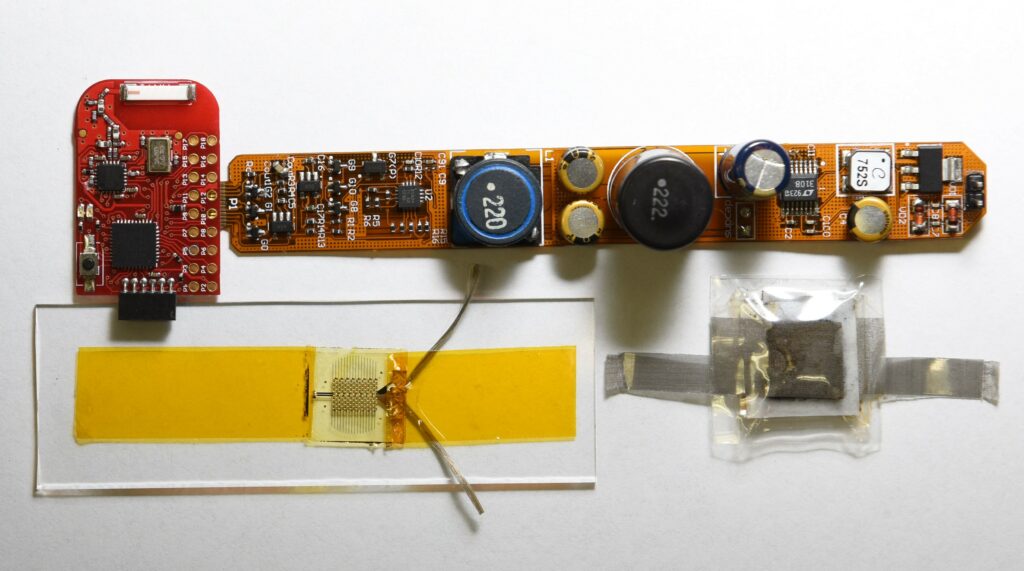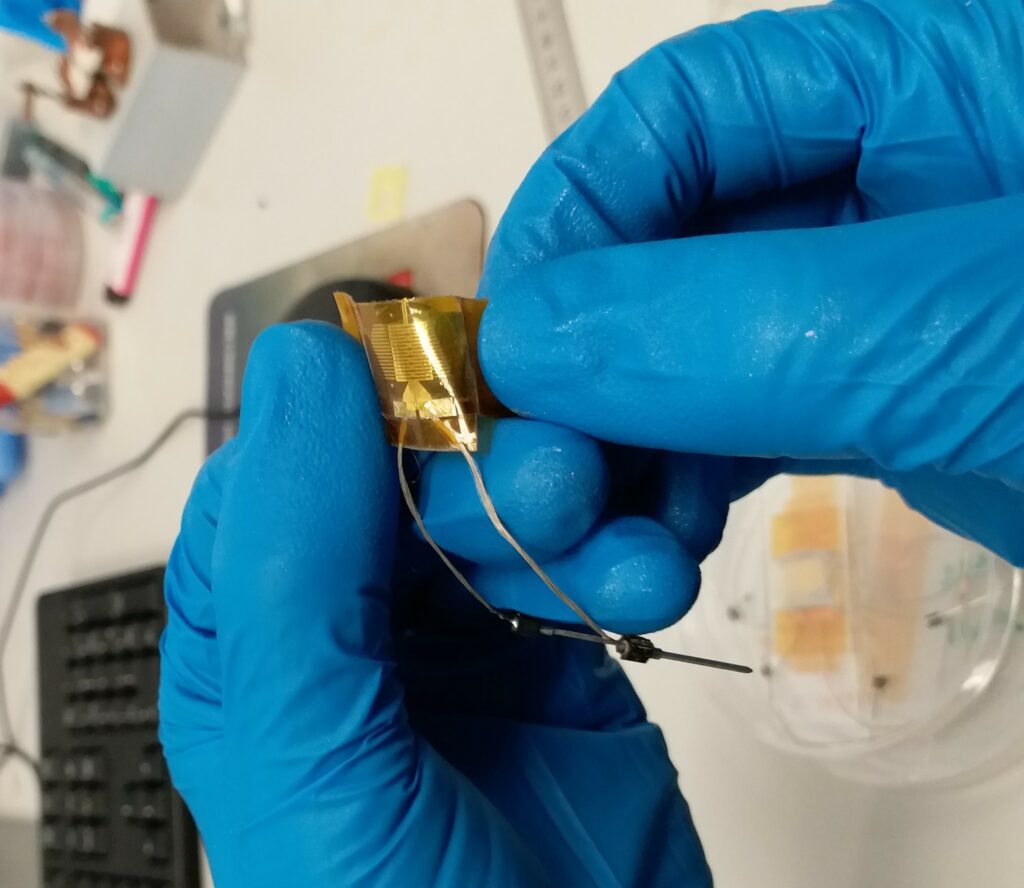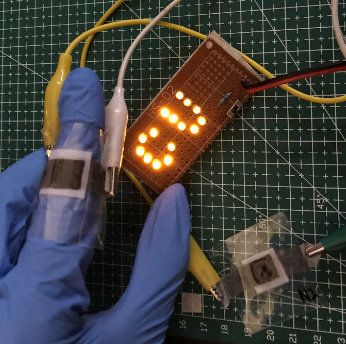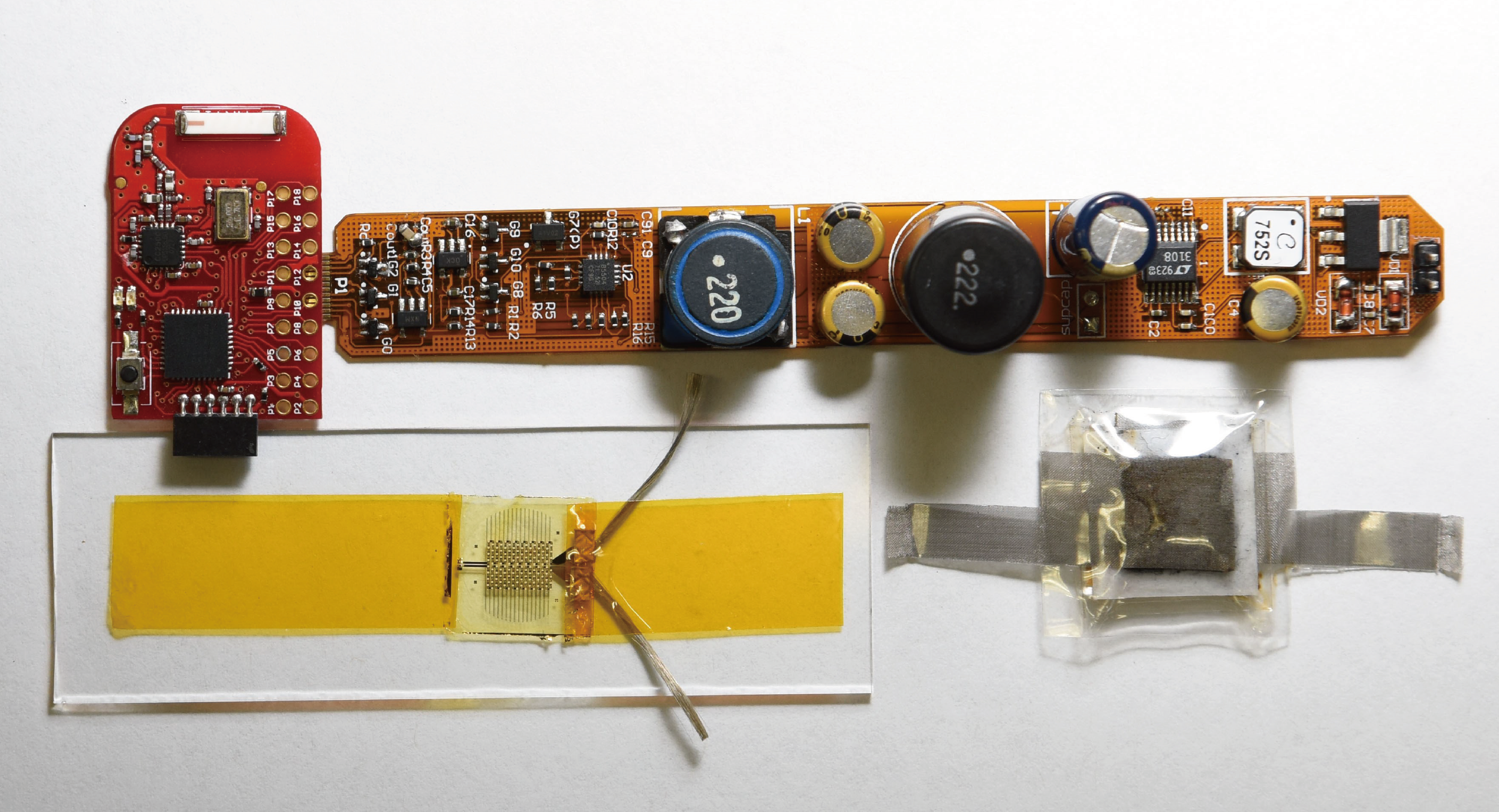Abstract:
Converting low-grade heat that naturally exists in buildings (e.g. Solar heating, pipe lines, generators, etc.) to electricity provides an attractive approach to sustainably power autonomous wireless sensor networks (WSNs). Such power supply will significantly reduce the labor and cost associated with replacing hundreds or thousands of batteries needed in the WSNs. In this project, integration of flexible and wearable thermal energy harvesting and storage will be developed by (1) integrating thermoelectric devices and rechargeable batteries using intelligent power management and (2) by thermogalvanic devices. Key technologies are to be developed include III-V semiconductor-based thermoelectric device prototypes, rechargeable intercalation battery prototypes that are optimized for thermoelectric charging, smart power management circuits, and intercalation-based thermogalvanic prototypes. Integrated prototype systems that exhibit a voltage output larger than 1.0V and a system power output between 100 microwatts and 1 milliwatts will be demonstrated.
Problem to be solved:
The development of autonomous WSNs requires efficient integration of energy harvesting and storage technologies. Exploiting thermoelectric devices to convert waste heat to electricity is an attractive way of creating a sustainable power system for autonomous sensor network application.
Thermal energy harvesting and storage for WSN application will (1) improve the system reliability; (2) reduce the labor and cost associated with replacing hundreds or thousands of batteries used in the WSN; (3) enhance overall building efficiency by transforming waste heat into useful power source.
Applications:
The raw materials, prototype designs, physical/mathematical models and system integration designs to be developed in this project will be core technologies and necessary knowledge for creating a sustainable thermal power supply system for autonomous WSNs.
Target Users:
Building management
Wireless sensors developer
Smart Home



Uniqueness and Competitive Advantages:
A System integration of thermoelectric and rechargeable Li-ion battery prototype for WSN will be developed. We will
(1) develop nanostructure III-V semiconductor-based thermoelectric materials and devices for heat harvesting;
(2) develop intercalation-based Li-ion rechargeable battery with wide range of operation window and non-toxic aqueous electrolyte;
(3) develop power management circuits to integrate thermoelectric devices and battery to realize WSNs. Devices are to be developed as flexible and wearable for suiting the application environment;
(4) develop high-surface area intercalation-based thermogalvanic devices using non-aqueous electrolytes;
(5) develop thin-film intercalation-based thermogalvanic devices with solid state electrolytes.
